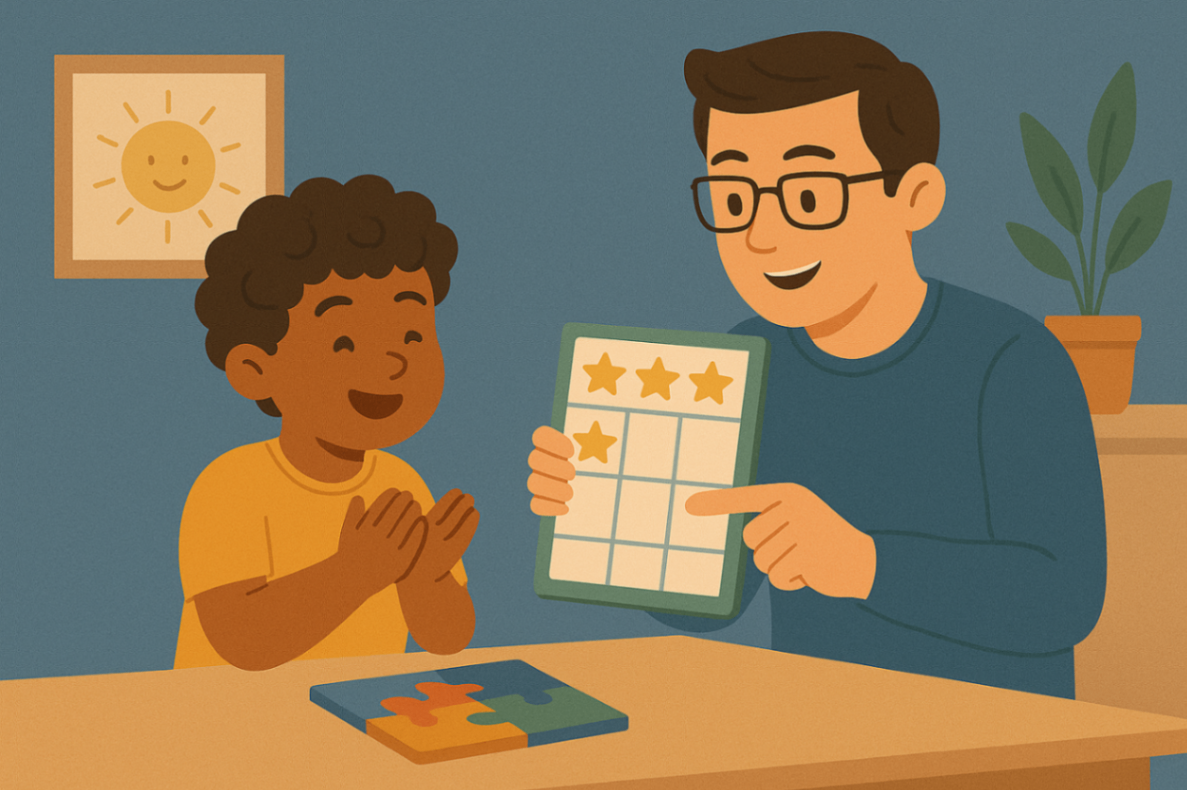
how positive behaviour support helps children with autism
19 June, 2025
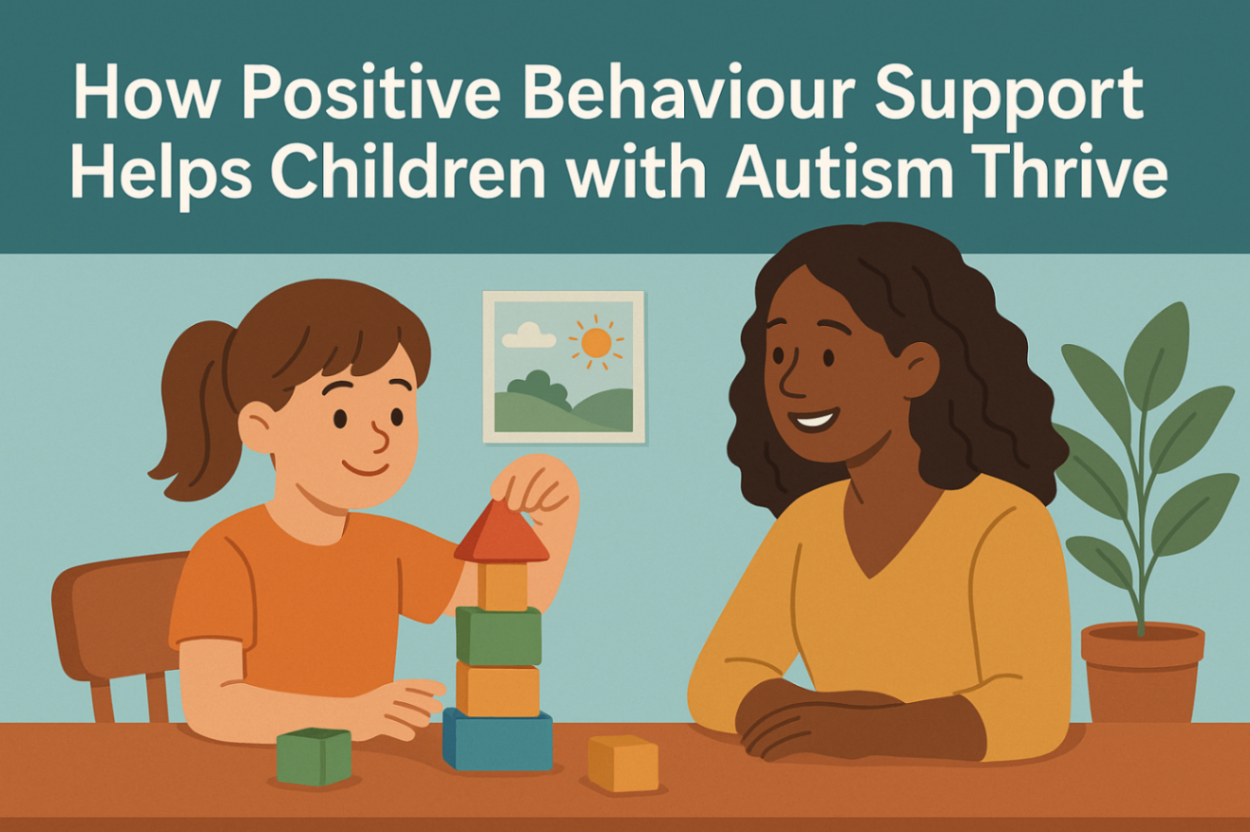
Key Highlights
-
Positive Behaviour Support (PBS) is a structured, research-backed method that helps foster positive behaviour and diminish challenging behaviour in children with autism spectrum disorder (ASD).
-
By emphasising individualised intervention and positive reinforcement, PBS significantly enhances a child’s ability to learn and interact.
-
Unlike punitive approaches, the PBS model prioritises understanding the reasons behind behaviour and creating tailored strategies for improvement.
-
Improving communication skills and social interactions is at the heart of PBS interventions.
-
PBS aligns seamlessly with NDIS behaviour plans, ensuring children’s developmental needs are met efficiently.
-
Collaboration between families and professionals strengthens PBS implementation and optimises results for autistic children.
Introduction
Raising a child who has autism spectrum disorder (ASD) can be hard, especially when you try to manage their behaviour. Positive behaviour support (PBS) gives hope to families who go through these things. This helpful system uses positive behaviour interventions to work with tough behaviours and helps kids learn better ways to talk and learn. PBS does not use punishment. Instead, it looks at each child and what they need. It helps autistic children get tools that make everyday life better for them. Because of PBS, these children can see an improvement in their quality of life and use their communication skills more each day.
Understanding Autism and Behavioural Challenges
Autism spectrum disorder, also called ASD, is a condition that affects how a person acts, talks, and gets along with others. It often brings unique problems for families. Children with autism may show actions that look disruptive to some people. But these actions are often there for a reason, like to get someone's attention or to get away from a tough or stressful moment.
Behaviour problems can happen because of a child's sensitivity to sounds, smells, or touches. They can also happen because it is hard for the child to talk or because they feel very worried. It is important to notice what sets off these behaviours. Knowing about these triggers helps people understand why these problems happen. PBS uses caring ways to look into these behaviours. It finds out their purpose and uses the right methods to help people with autism and other developmental disabilities.
Common Behavioural Issues in Children with Autism
Behaviour problems in autistic children can show up in ways that be hard for families and can get in the way of normal routines or social time. What might look like severe behaviour problems is often because the child has trouble talking, feels too much from their senses, or deals with anxiety.
For example, these behaviour problems may look like doing the same movement over and over, getting angry or aggressive, or moving away from a group to be alone. The child does these things for a reason. They help the child feel better, give some comfort, or help the child stay away from what is hard or scary.
At times, more severe behaviour problems might happen. There could be broken things or the child could hurt himself or herself. If you don’t step in with help, the behaviour problems can get worse. This has a negative impact on the child and makes it hard for the child to be part of school or things in the community. PBS gives ways for children to replace tough behaviours with good choices. The goal is to help autistic children grow in all areas of life and lower the negative impact that behaviour problems can have.
Impact on Daily Life and Family Dynamics
A child’s behaviour problems can affect the whole family. Parents may get tired and stressed when they have to handle tough behaviours. This stress can make it hard for parents to help their child build new skills. The family can find it hard to work together, and everyone’s mental health can be hurt.
Children with autism can have behaviour issues that make daily life harder. For example, loud places can overwhelm them, which may cause meltdowns. These can make it tough to travel or go to social events.
This can hurt the quality of life for the family over time. Positive behaviour support (PBS) helps the lives of people with autism and can also help the family work together. PBS supports families by giving them ways to handle problems. This turns hard moments into chances to grow and connect with each other.
Key Areas Where PBS Helps Children with Autism Thrive
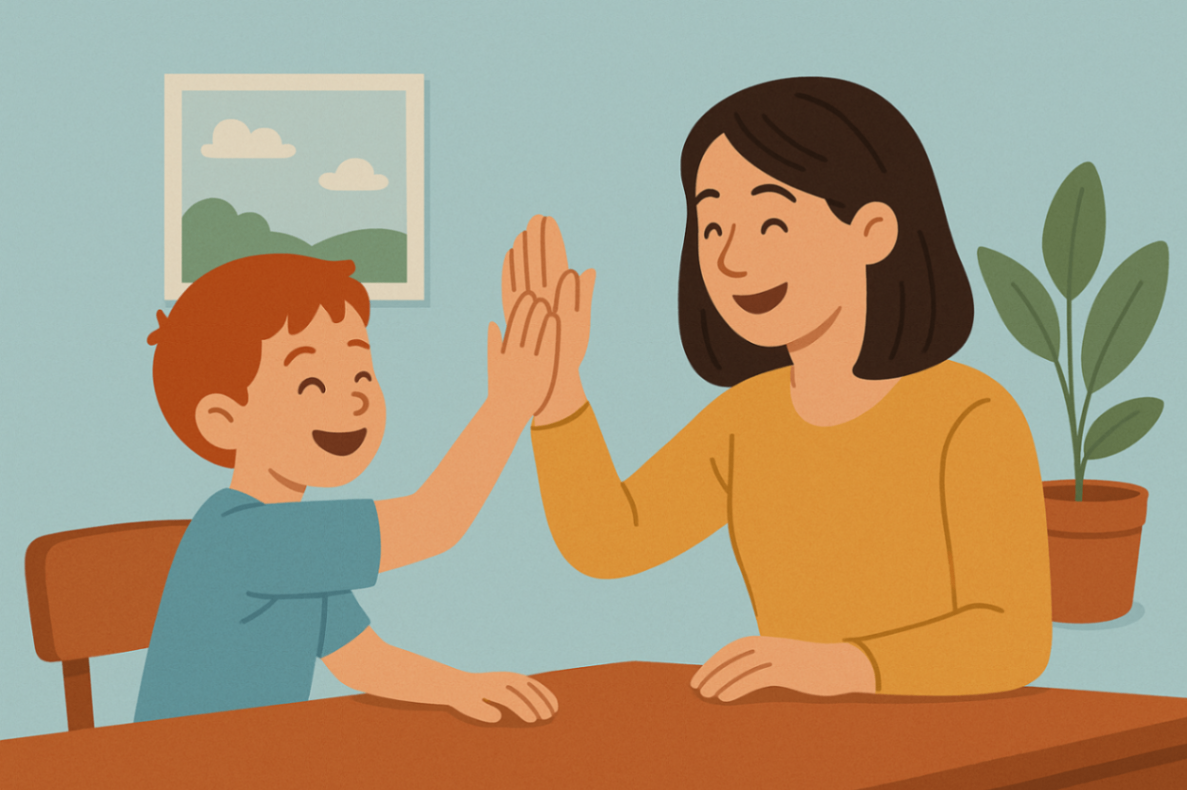 Positive behaviour support, known as PBS, can be a good way to help autistic children. It helps improve their quality of life by working on a few important things. These include reducing problem behaviour and helping children develop better communication skills. PBS works by using positive reinforcement, so kids can see what to do in social situations with others.
Positive behaviour support, known as PBS, can be a good way to help autistic children. It helps improve their quality of life by working on a few important things. These include reducing problem behaviour and helping children develop better communication skills. PBS works by using positive reinforcement, so kids can see what to do in social situations with others.
The PBS model looks at each child as someone who has their own needs. A behaviour support plan made just for them can really help. This approach deals with severe problem behaviour and helps children build the tools they need to do well in different places. In the end, PBS helps build a caring community for their growth and well-being.
Reducing Challenging Behaviours
Using positive behaviour support helps create an environment where children with autism can do well. The goal is to help children by fixing difficult behaviours with special plans for each child. This puts focus on what each of them needs. It is important for people to know the main reasons for certain behaviours. Many times, behaviours come from things in the children's environment or trouble with talking and listening.
When you focus on positive reinforcement, you help the child to better handle their feelings. It also helps them grow their communication skills. As a result, there are fewer difficult behaviours. If you focus on having the child take part in positive behaviour, you help them to build stronger relationships. This can give them a better quality of life and help them enjoy time with other people.
How PBS Differs from Traditional Behaviour Management
PBS stands out from old ways of managing behaviour because it does not use punishment. Instead, it tries to help people understand why a problem behaviour happens. Traditional models often look to control kids with consequences. But positive behaviour support looks for the real reasons behind actions and tries to be kind while fixing them.
Positive behaviour support uses ideas from applied behaviour analysis. It sets up systems of supports that help children learn positive behaviour. Instead of using force, these supports focus on positive reinforcement to teach important skills.
Many old ways do not consider what each person needs, but the positive behaviour support process does. PBS checks how things are going and changes what it does as needed. This helps all methods stay new and work well, compared to harsh use of punishment. Because of this, you get a better and longer-lasting way to manage behaviour. It helps people feel more in control and is more likely to give good results over time.
The Science Behind PBS
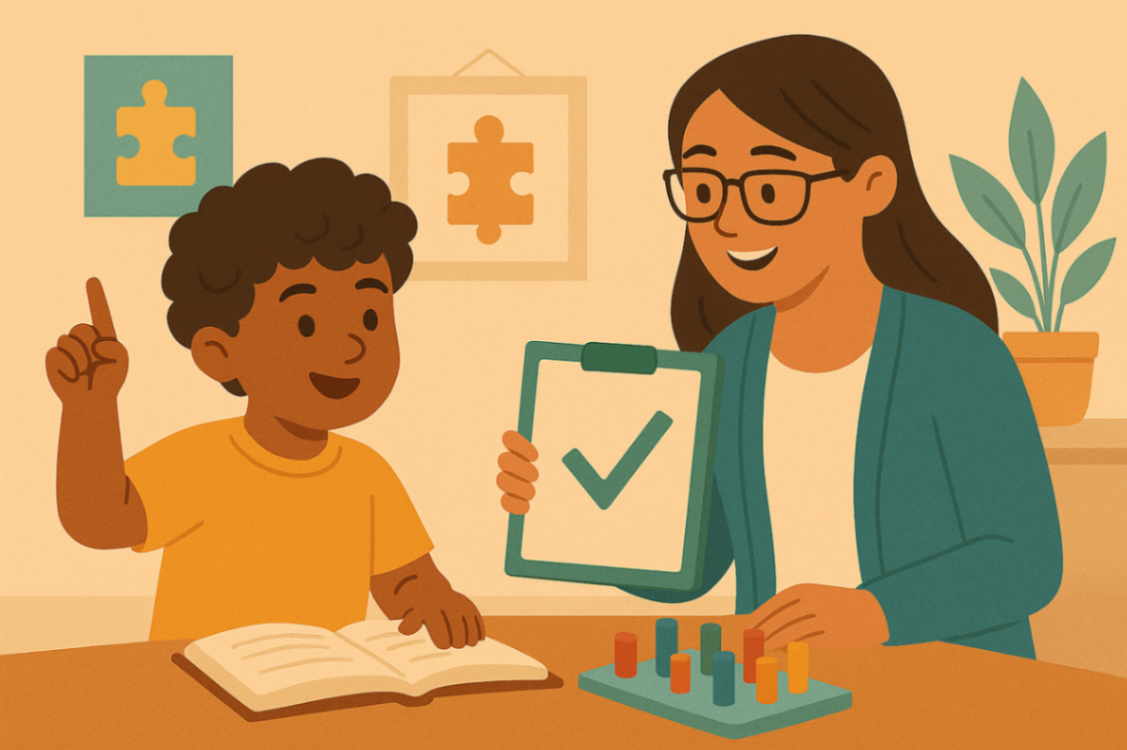 PBS is more than just a way of thinking. It is a science that comes from applied behaviour analysis. It uses research literature to help understand why someone behaves in a certain way and looks at how environmental factors affect them. The principles of positive behaviour support also focus on this.
PBS is more than just a way of thinking. It is a science that comes from applied behaviour analysis. It uses research literature to help understand why someone behaves in a certain way and looks at how environmental factors affect them. The principles of positive behaviour support also focus on this.
The Journal of Positive Behaviour Interventions shows that the foundation of PBS is in using proven methods. These are based on careful behaviour analysis and strong behavioural assessments. This approach uses research to not just change behaviour, but also to help improve the quality of life for autistic children. It is the science of kindness and understanding, and it helps families get the right tools to make real progress.
Evidence-Based Approaches in PBS
PBS uses real science to help people make positive changes in how they act. Research-backed frameworks like applied behaviour analysis shape plans that fit each person’s needs.
|
Approach |
Focus |
|---|---|
|
Functional Behavioir Assessment |
Finds out what starts and affects each behaviour |
|
Positive Reinforcement |
Gives rewards to support good behaviour |
|
Environmental Adjustments |
Changes things around a person to help with problem behaviour |
The Journal of Applied Behavioir Analysis shows that these ways of working, which rely on behaviour analysis, can lead to clear results. For children with autism, such interventions help them build safer ways to interact with others and reach their goals as they grow. When results are checked often and plans are updated, PBS helps to keep getting better over time.
Research Outcomes for Children with Autism
Studies show that PBS programs help autistic children in many ways. They often see fewer behaviour problems, and there are good changes in communication skills. Some also see benefits for those with mental retardation. All of this can help their quality of life.
One research in the research literature talked about an intensive intervention program. This kind of help, made for each child, can lower severe behaviour problems after a few weeks. Another result, found through Google Scholar, showed that parents and people who care for these children feel less stress. So, PBS programs help not only the kids themselves but also those around them.
There are still some challenges in finding out if these good things last a long time. Still, what we know now shows that PBS matches well with developmental goals and can make life better and more stable for many autistic children.
Key Components of a PBS Plan
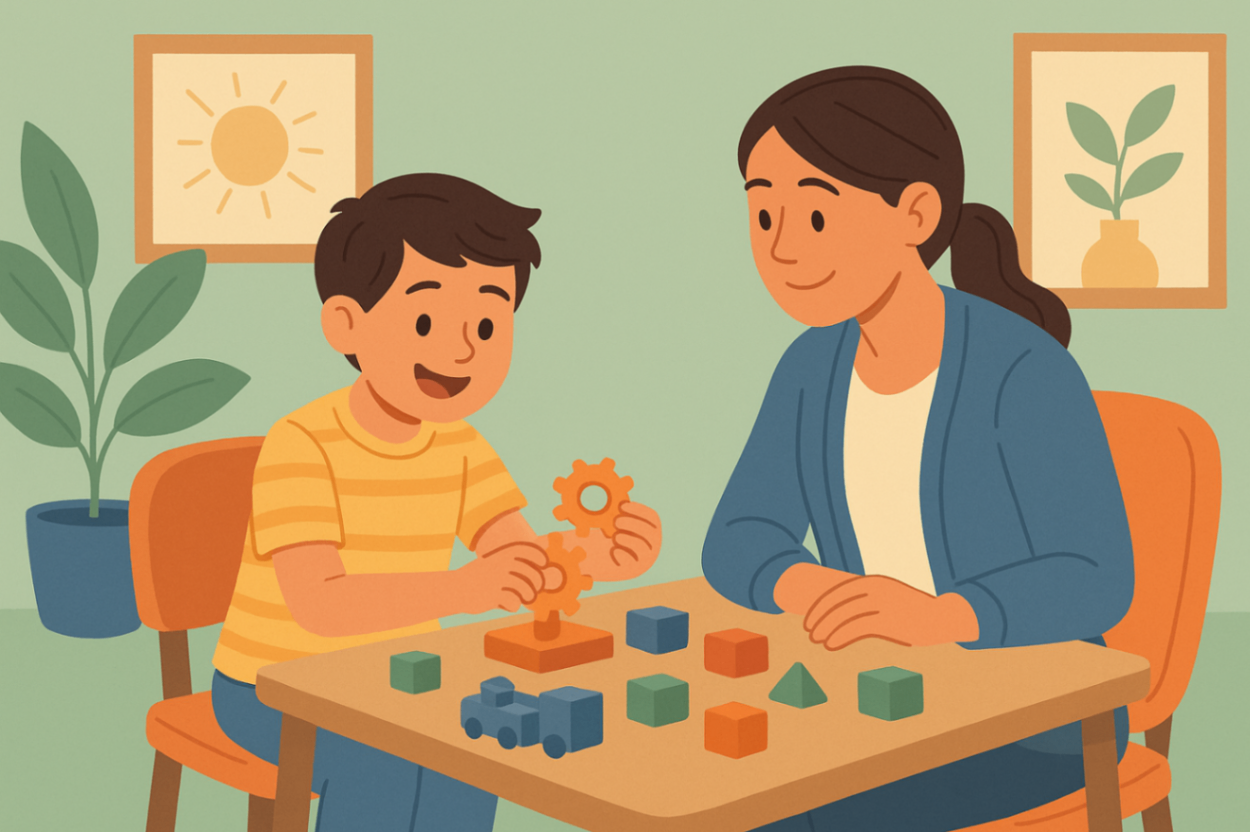 Every PBS plan needs important parts like the functional behaviour assessment and support tailored for each person. The PBS model starts with a behavioural assessment. This helps to find out what causes the problem behaviours.
Every PBS plan needs important parts like the functional behaviour assessment and support tailored for each person. The PBS model starts with a behavioural assessment. This helps to find out what causes the problem behaviours.
When you know these triggers, you can make a behaviour support plan. This plan helps teach the child better ways to act and changes the environment, so problem behaviours happen less often. These plans are made for each child, so what you do works well and lasts for a long time. The goal is to help the child grow and get better at getting along with others.
Functional Behaviour Assessment (FBA)
Understanding the small details of how each child acts is key for good positive behaviour support. A Functional Behaviour Assessment (FBA) helps with this. It lets people who care for and teach children find out why some behaviours happen. The FBA uses close watching and thinking to see how things in the environment, how they talk, and what sets them off can change what a child does. This gives clear insight and helps make support that fits each child. In the end, this helps improve the quality of life for autistic children. It also takes care of their different needs with kindness and help.
Developing Individualised Support Strategies
Effective individualised behaviour support builds systems of supports that fit the unique needs of autistic children. When families and teachers use early intervention for autism and set personal goals for behaviour, PBS can match strategies to the child’s path of growth.
These plans focus on teaching new skills. For example, if a child has trouble with other people, they can join planned situations where they practice good ways to talk and play. These goals help the child reach a better quality of life, step by step.
When families help with this, individualised plans bring real changes in how the child acts. PBS lets us give care that is shaped for each child, so change can last and be meaningful for them.
Communication Enhancement Through PBS
 Children with autism often find it hard to talk and share with others. PBS gives clear ways to help these children learn new communication skills. By using these skills and using simple behavioural interventions, a child can have more chances to connect with other people.
Children with autism often find it hard to talk and share with others. PBS gives clear ways to help these children learn new communication skills. By using these skills and using simple behavioural interventions, a child can have more chances to connect with other people.
For example, some special education methods in PBS use positive behaviour support to help with behavioural disorders. These methods let children have new ways to say what they want or need. This helps stop actions that can cause trouble, so the child can join in better at home and with the community.
Supporting Nonverbal and Minimally Verbal Children
PBS gives special help to children with autism who do not speak or speak very little. These methods help make talking and non-talking ways of sharing easier. This can help break down walls so kids can talk better and show what they need.
-
Behaviour analysis is used to see where the child might have trouble talking and shows the best ways to help.
-
Children can use tools like visual aids so it is easier to get their ideas across.
-
When children try to talk in new ways, they are encouraged. This can help them keep trying or say more.
Many families see changes in the way their child bonds with others because of these PBS steps. PBS helps bring down the walls that stop kids from being understood. With the right help, families and kids often get a clearer, stronger way to connect.
Teaching Alternative Communication Methods
Teaching other ways to talk is an important part of PBS. Applied behaviour analysis looks at what the child can and cannot say. It also brings in positive behaviour interventions that help children take part in conversations.
Online courses show different ways to help meet a child’s talking needs. For example, if the child has trouble with speaking, they might do well with sign language or technology to talk. These PBS strategies focus on helping your child grow, not just on the problems. They make it easier for the child to share and connect with people.
Many parents find that these different ways give their child more freedom. At the same time, they help with behaviour too.
Building Social Skills with PBS
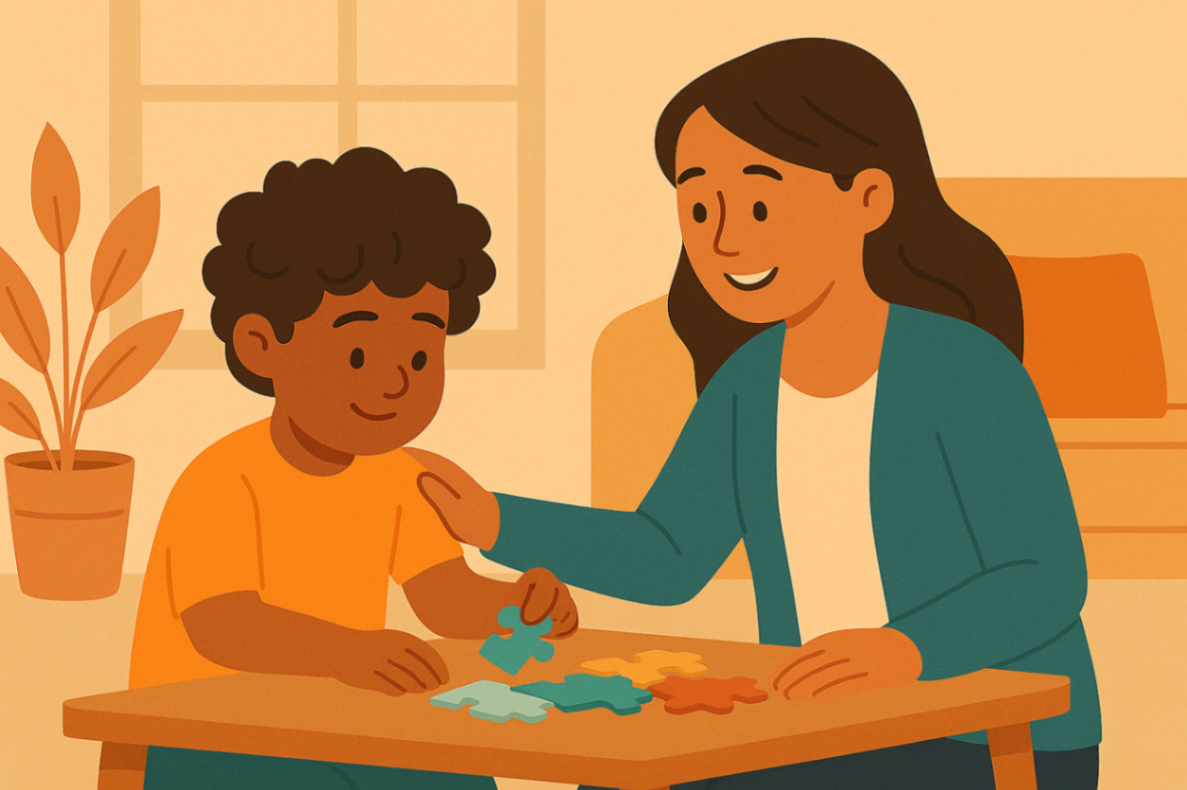 Social skills are very important for children who have autism. These skills help them talk with others and make friends. Positive behavioural support helps young children learn the basics of how they should act in social situations. It also helps them get better at talking and working with others.
Social skills are very important for children who have autism. These skills help them talk with others and make friends. Positive behavioural support helps young children learn the basics of how they should act in social situations. It also helps them get better at talking and working with others.
By giving clear ways to practice and by using role-play, positive behavioural support helps children grow in how they deal with others. These steps help them build good friendships with other kids. It also helps lower confusion about behaviour, so children have a better chance to connect with people.
Facilitating Peer Interactions
Peer interactions help shape the social growth of autistic children, but these moments can be hard. Positive behaviour support (PBS) uses clear and supportive ways to help with these challenges.
Many children have problem behaviour in group settings. With PBS strategies, you can help autistic children get ready to take part in social activities with more confidence. PBS makes it easier for them to show positive behaviour in these moments.
Working together, such as in group games led by mentors, can help children join in with care. As their interactions get better, the children can make new connections with others. This helps to lower behaviour issues and also gives them more social care.
Role-Playing and Structured Social Opportunities
Role-playing is one of the best ways used in PBS. This method helps children learn how to act with other kids in a safe setting.
-
Structured chances like watched small-group activities give autistic children a way to practice good responses.
-
Applied behaviour analysis helps improve these times, so behaviour changes match each child’s own needs.
-
Children pick up social skills in a setting that is low in stress, with less frustration or worry.
These ideas work well with how young children learn. They also help them make good habits to use when talking to others.
How PBS Fits into Your Child’s NDIS Plan
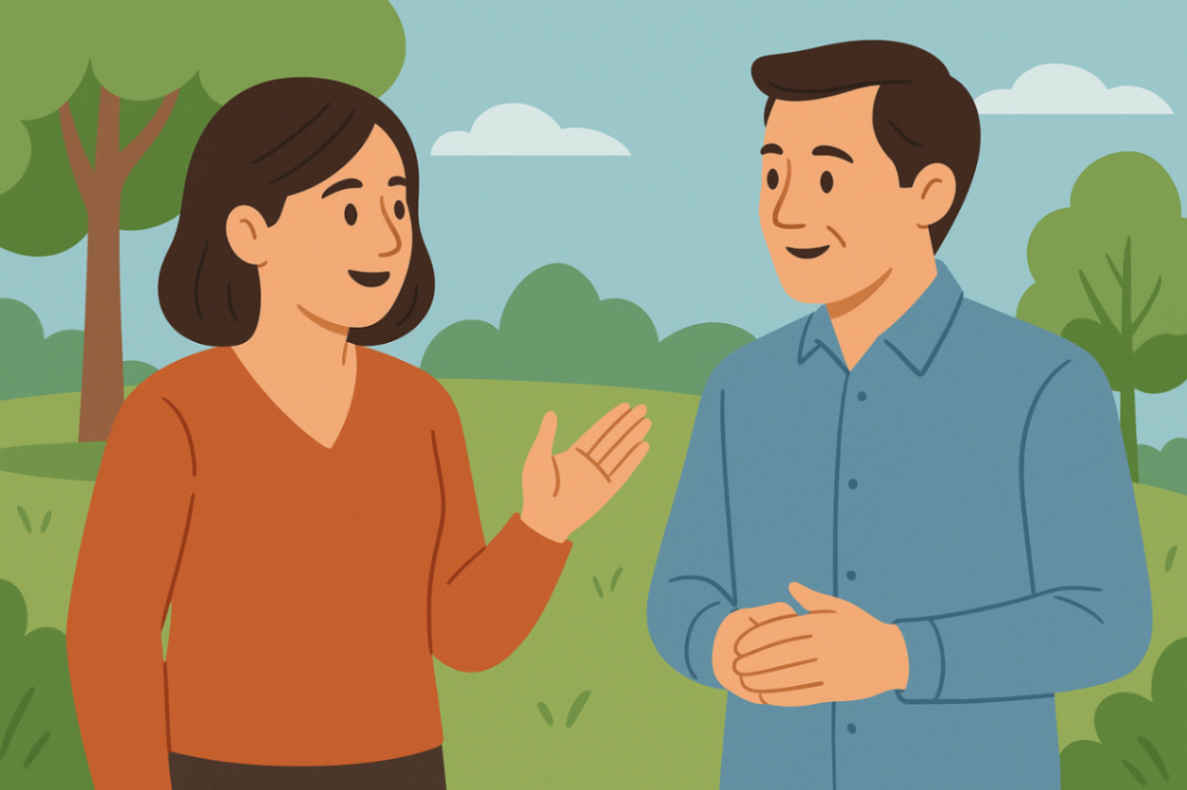 For parents using NDIS behaviour support plans, positive behaviour support (PBS) works well with what their child with autism spectrum disorder (ASD) needs. These customised positive behaviour plans help include both developmental changes and guide behaviour in a way that fits the child.
For parents using NDIS behaviour support plans, positive behaviour support (PBS) works well with what their child with autism spectrum disorder (ASD) needs. These customised positive behaviour plans help include both developmental changes and guide behaviour in a way that fits the child.
NDIS-funded plans are made to set personalised goals and improve the child’s quality of life. PBS is the base of these plans. It helps make sure that changes in behaviour get steady support at home, at school, and when out in the community. Parents can trust in positive behaviour support to give good and simple ways to lower challenging behaviours and help in daily life.
Autism-Focused Behaviour Support at daar Liverpool
Liverpool autism services offer positive behavioural support made for families in the area. These services work with proven methods that focus on autistic children and their needs.
Families get to use programs made to help autistic children grow and do well. With liverpool autism services, parents can find support based on good research that fits what their child needs most. The way these services use a positive approach helps children and their families find a way to improve and have better days.
How we Tailors Support for ASD
At daar Liverpool, positive behaviour support is shaped to fit each autistic child’s strong points. The development of PBS stays focused on what each child can do well. Every child has their own check done, so the team can make plans that help with what they find hard.
Families get local help with things like understanding behaviour and learning how to step in early. These tools match what families want for their child. This approach mixes rewards with ways to avoid tough behaviours later so all steps feel the same each time.
Liverpool autism services help find problems in how people talk with each other and then change rewards for how children act. Their positive behaviour support puts growing before everything else, making sure each new skill builds on the last.
Family Collaboration and Local Access
Family teamwork is at the heart of good PBS interventions. Local solutions help families take part. This means supports for autistic children fit their home life and what they need.
The PBS community in Liverpool brings families closer to positive behavioural strategies. With organisational behaviour management, there is training to make this teamwork better and smoother.
In the end, parents help set the right goals for behaviour, so their child can do better. When a family knows what to do, they get stronger and more eager to help. This leads to real and lasting changes, giving autistic children in the area a better future.
Book a Free Consultation to Learn More
Struggling with challenging behaviours or looking for the right support for your child? daar's Liverpool-based autism services offer free consultations to help families access personalised Positive Behaviour Support (PBS) strategies that deliver real results.
Our team will guide you through effective support options — from managing severe behaviours to introducing structured strategies that work in everyday life. You’ll also gain access to practical online resources, including short courses and ready-to-use tools that help you start your PBS journey with confidence.
Whether you're just beginning or need deeper intervention, we provide expert guidance that’s easy to understand and immediately actionable. Families in Liverpool often come across services like APSuccess or Allied Health Association — both active in the NDIS space.
Book your free consultation today and take the first step toward transforming behavioural challenges into opportunities for growth. Proudly supporting families across Liverpool, Casula, Moorebank, Prestons, and surrounding suburbs.
Conclusion
To sum up, Positive Behaviour Support (PBS) is a great way to help children with autism. It helps them improve their positive behaviour, how they talk, and the quality of life for them and their families. The main goal of PBS is to make plans that fit the needs of each child. It uses proven ways to work on behaviour support and helps kids learn new social and communication skills that are so important. This kind of help matches well with NDIS goals. It gives families the help they need to make sure their child can grow in the best way.
Frequently Asked Questions
Is PBS suitable for all children with autism?
Yes, PBS can work for children with autism no matter what needs they have. It uses positive behaviour support and ways that fit each child. This helps with hard behaviours and helps build new skills.
How quickly can we expect to see results with PBS?
Timelines can be different for every child and for each help or intervention. This is because every child is unique. Behaviour change does not usually happen all at once. It takes time. But positive reinforcement, used in PBS, can help you see measurable progress. Most families start to see some improvements in their child within a few weeks when they use positive reinforcement often and in the right way.
Can PBS strategies be used at school and home?
Yes, PBS fits nicely into both home and school settings. The use of behaviour analysis helps bring the same helpful tools to different places, so everyone can handle problem behaviours in a steady way. This makes it easier for people to deal with everyday problems and keep things running smoothly at home and at school.
What if my child’s behaviour gets worse before it improves?
Behaviour modification can sometimes lead to a short time where things get tougher before you see stable results. PBS looks at challenging behaviours as part of a bigger support plan. This way, it makes sure that any problems you face now will help in the long run. People keep checking the progress. They change the plan if they need to.
How do I know if my child needs professional PBS support?
You may need help from a professional in Positive Behaviour Support (PBS) if your child has very strong behaviours that make daily life hard. Experienced PBS experts do assessments. These help guide plans for care. This way, children get autism-focused supports that meet their needs for both growth and behaviour.
.svg)






